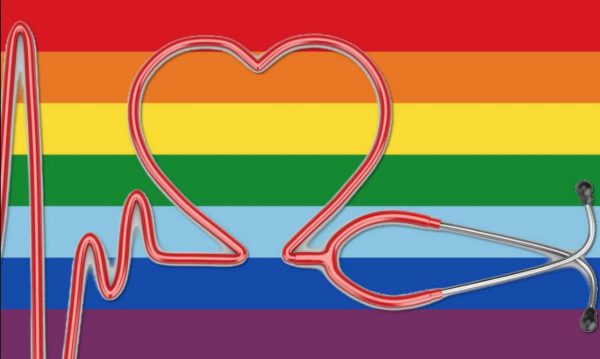At their recent panel on Feb. 25, Healthy McGill and the Nursing Peer Mentorship Program hosted a collaborative forum to address LGBTQ+ needs in healthcare.
“Over 50 per cent of trans people say they are not comfortable going and getting healthcare services and, of people that needed emergency care in Ontario, about 23 per cent opted not to get the care,” Florence Ashley, a transfeminine jurist and bioethicist, said during the discussion.
These statistics are stark evidence of a lack of professionals trained to address the needs of the LGBTQ+ community, which has long struggled to have access to the same basic services as the general, cisgender, heteronormative population, particularly in rural areas. Trans individuals are often forced to travel to large cities to visit one of a select few doctors known among the community for offering adequate services.
Panellists at the forum included Ashley, Kimberly Wong, who works with AIDS Community Care Montreal (ACCM), and Eve Finley, an equity facilitator with the McGill Dean of Students.
“[This session is for] folks who have never heard all the letters to [the LGBTQI2A] acronym and […] folks that may be deeply immersed in trans activism in communities,” Ashley said.
The panel started with an exploration of the meaning of each letter in the LQBTQI2A acronym and the difference between the terms transsexual and transgender. It aimed to educate students, particularly those in nursing, occupational therapy, and dietetics, about appropriate care practices for LGBTQ+ individuals. The forum served primarily as a safe space to ask questions and disenuntangle assumptions about individuals in the community such as the difference between sexuality and gender.
“Sexuality is who you go to bed with, gender is who you go to bed as,” Finley said.
The simple definition cleared up many preconceived ideas at the forum and hinted at a major issue across education systems: The lack of proper, LGBTQ+-inclusive sexual education.
Sex education in Quebec is known to be rudimentary and mainly addresses the needs of its heterosexual population. From teaching students about penetrative sex, contraception methods, and how to put on a condom, sex education in primary and secondary schools is often irrelevant for LGBTQ+ youth. McGill’s programs to train future healthcare professionals are similarly lacking.
During the education session, the panellists divulged helpful tips to put LGBTQ+ patients at ease in a healthcare setting. Sharing one’s pronouns and avoiding the use of gendered titles were just two of the practices.
“As a healthcare provider, you can still support someone and be respectful to them and be inclusive of them even if they are using words to describe themselves that you do not quite understand,” Finley said.
These simple approaches, rooted in respect, empathy, and understanding, were just a few of the recommendations made during the forum.
“‘I would rather die than go to the doctor because I cannot stand being misgendered again,’” Wong said, recalling words from LGBTQ+ individuals she had interacted with.
By educating healthcare professionals on the needs of LGBTQ+ populations, the panellists hope that, one day, such a phrase will no longer be spoken.








